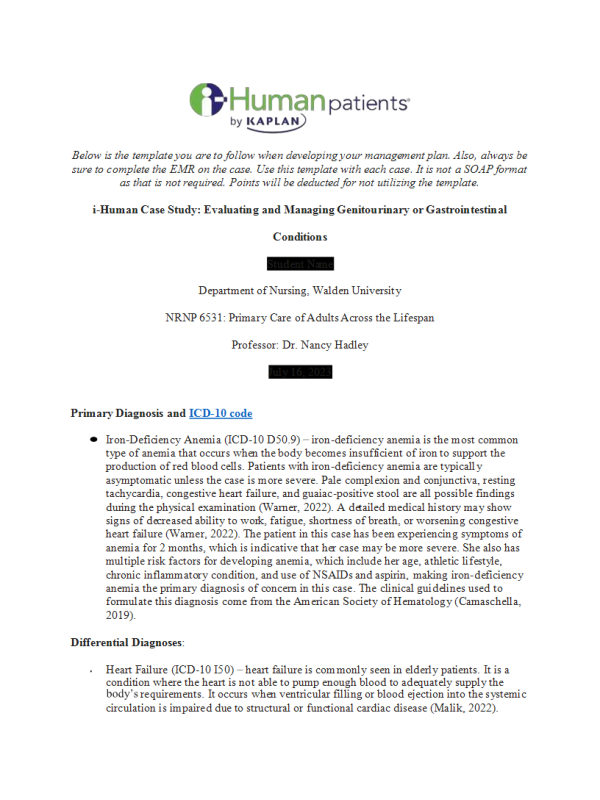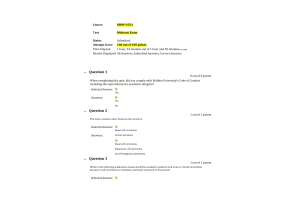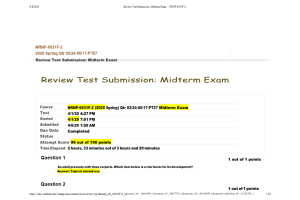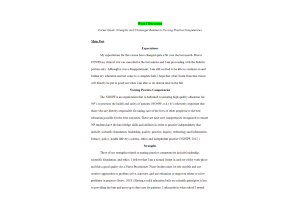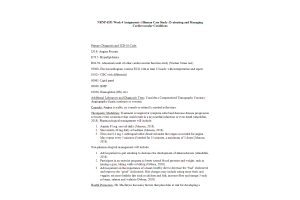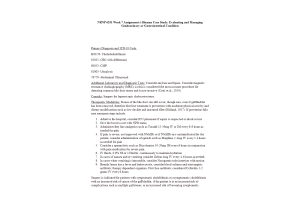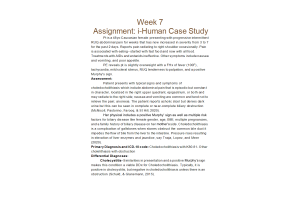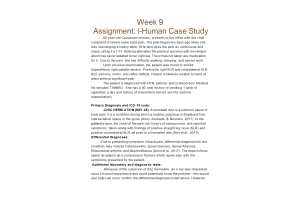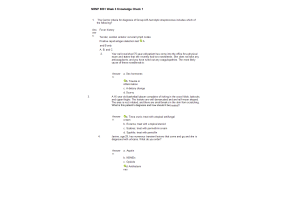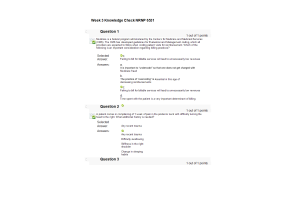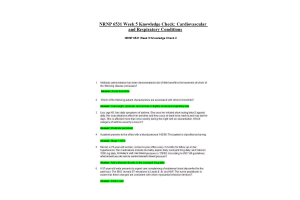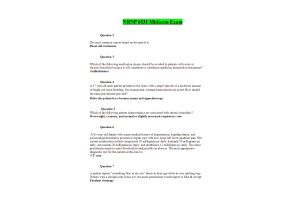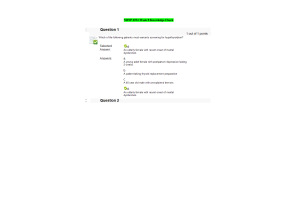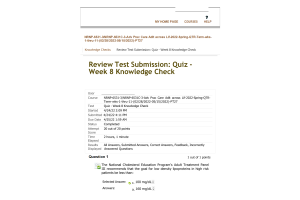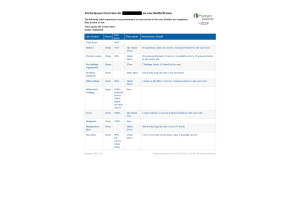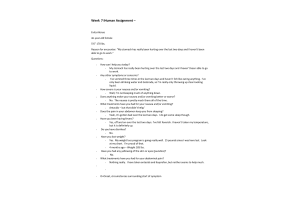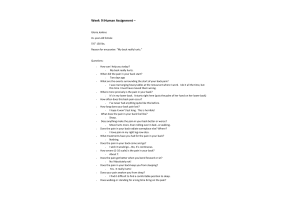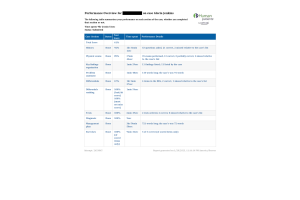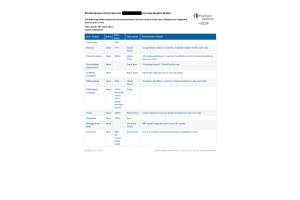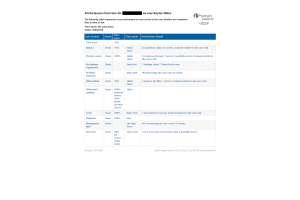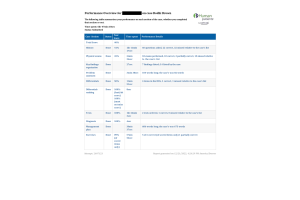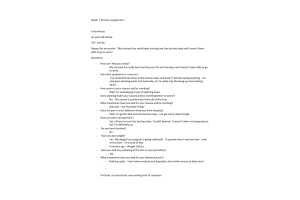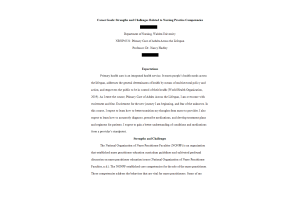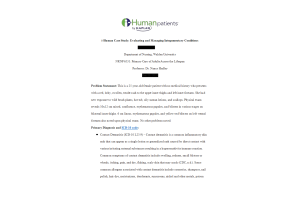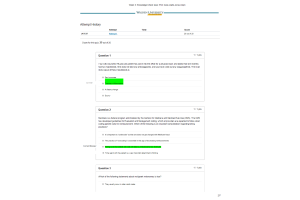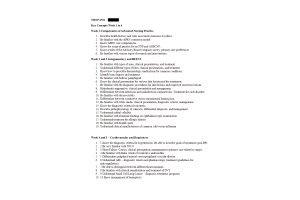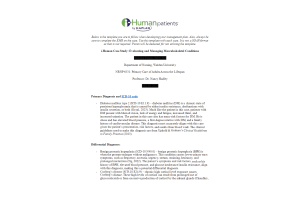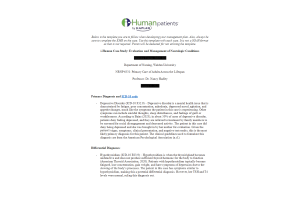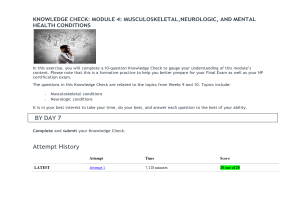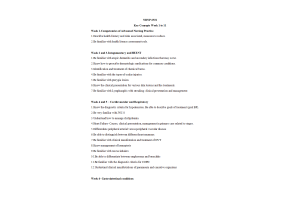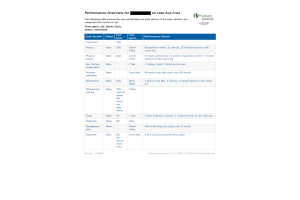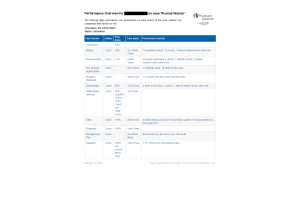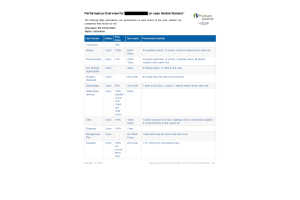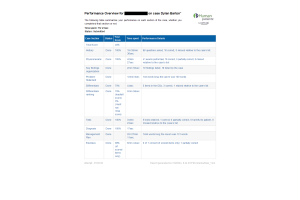NRNP 6531 Week 7 Assignment; i-Human Case Study; Evaluating and Managing Genitourinary or Gastrointestinal Conditions
- $25.00
Document Preview
Primary Diagnosis and ICD-10 code
- Iron-Deficiency Anemia (ICD-10 D50.9) – iron-deficiency anemia is the most common type of anemia that occurs when the body becomes insufficient of iron to support the production of red blood cells. Patients with iron-deficiency anemia are typically asymptomatic unless the case is more severe. Pale complexion and conjunctiva, resting tachycardia, congestive heart failure, and guaiac-positive stool are all possible findings during the physical examination (Warner, 2022). A detailed medical history may show signs of decreased ability to work, fatigue, shortness of breath, or worsening congestive heart failure (Warner, 2022). The patient in this case has been experiencing symptoms of anemia for 2 months, which is indicative that her case may be more severe. She also has multiple risk factors for developing anemia, which include her age, athletic lifestyle, chronic inflammatory condition, and use of NSAIDs and aspirin, making iron-deficiency anemia the primary diagnosis of concern in this case. The clinical guidelines used to formulate this diagnosis come from the American Society of Hematology (Camaschella, 2019).
Differential Diagnoses:
- Heart Failure (ICD-10 I50) – heart failure is commonly seen in elderly patients. It is a condition where the heart is not able to pump enough blood to adequately supply the body’s requirements. It occurs when ventricular filling or blood ejection into the systemic
circulation is impaired due to structural or functional cardiac disease (Malik, 2022).
Patients with heart failure present with clinical manifestations of shortness of breath and fatigue with exertion, which are similar symptoms to the patient in this case. The patient also presents risk factors that align with this diagnosis, such as coronary artery disease and hypertension. However, patients with heart failure often have fluid retention, orthopnea, and paroxysmal nocturnal dyspnea, which this patient did not present with during the physical exam or indicate signs of in their history.
- Colorectal Cancer (ICD-10 C18.9) – in the United States, the third most common cause of cancer deaths in both men and women (Siegel et al., 2023). Colorectal cancer can
cause blood loss. Patients with colorectal cancer may present with changes in bowel habits and iron-deficiency anemia, much like the patient in this case, making colorectal cancer a possible differential diagnosis. Further testing and consultation with a gastroenterologist must be made to confirm this diagnosis……….. Continue
